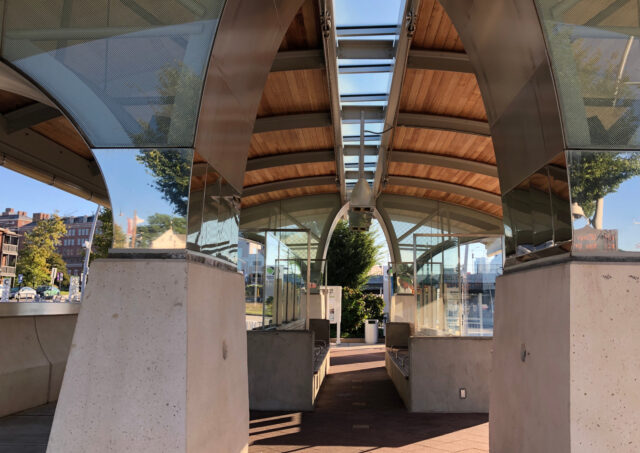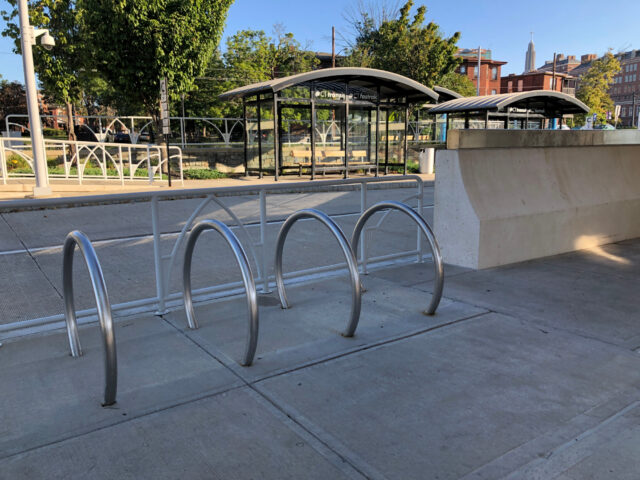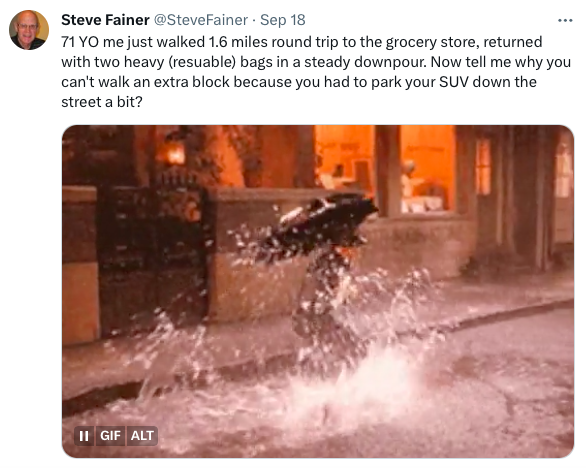“Some say that we shouldn’t involve morality because it can induce feelings of guilt and guilt is not an ideal way to create change. But what else can we do? How do we address this uncomfortable subject without upsetting anyone? How can we talk about an existential human crisis created by inequality, the exploitation of workers and nature, land theft, genocide and overconsumption without any mention of morality? Should we just pretend that the greatest threat we’ve ever faced is mainly an opportunity to create ‘new green jobs’ and a better future for all without any major changes for anyone?”
-Greta Thunberg, “This is the Biggest Story in the World,” from The Climate Book
Thunberg asks all the right questions.

Guilt, for some, is a motivator.
Ask me how I know.
It might not be enough to keep someone doing the right thing constantly, but if it compels them to take some first steps? The steps that get them making better personal choices or better public policy? How do you argue against that. A temporary feeling of discomfort to get someone to act right, which will later be replaced by other emotions like a sense of pride in how they conduct themselves or their job? It’s not the same as shaming, which much of our culture is obsessed with doing right now; shame is ugly and damaging. Guilt and shame are not the same.

Tomorrow is World Car-Free Day.
I won’t drop the guilt on you. I’ll let others do that.
If you are able-bodied and living in a Connecticut city or suburb, the following is meant for you.
First:

(click photo to go to post and see rest of her caption)
If public transportation in the United States is good enough for Regina Spektor, why is it not good enough for you?
Second:

I do not need or want to hear your reasons for why you won’t, if that’s what you’ve landed on for tomorrow.
But I’ve made a little alternate action guide for the excuse makers:

And finally: 
How do you connect with others doing this work? There’s a guide for that.
Climate Possibilities is a series about climate mitigation, along with resilience, resistance, and restoration. It’s about human habitat preservation. It’s about loving nature and planet Earth, and demanding the kind of change that gives future generations the opportunity for vibrant lives. Doomers will be eaten alive, figuratively. All photographs are taken in Hartford, Connecticut unless stated otherwise.
Steps
“Some say that we shouldn’t involve morality because it can induce feelings of guilt and guilt is not an ideal way to create change. But what else can we do? How do we address this uncomfortable subject without upsetting anyone? How can we talk about an existential human crisis created by inequality, the exploitation of workers and nature, land theft, genocide and overconsumption without any mention of morality? Should we just pretend that the greatest threat we’ve ever faced is mainly an opportunity to create ‘new green jobs’ and a better future for all without any major changes for anyone?”
-Greta Thunberg, “This is the Biggest Story in the World,” from The Climate Book
Thunberg asks all the right questions.
Guilt, for some, is a motivator.
Ask me how I know.
It might not be enough to keep someone doing the right thing constantly, but if it compels them to take some first steps? The steps that get them making better personal choices or better public policy? How do you argue against that. A temporary feeling of discomfort to get someone to act right, which will later be replaced by other emotions like a sense of pride in how they conduct themselves or their job? It’s not the same as shaming, which much of our culture is obsessed with doing right now; shame is ugly and damaging. Guilt and shame are not the same.
Tomorrow is World Car-Free Day.
I won’t drop the guilt on you. I’ll let others do that.
If you are able-bodied and living in a Connecticut city or suburb, the following is meant for you.
First:
(click photo to go to post and see rest of her caption)
If public transportation in the United States is good enough for Regina Spektor, why is it not good enough for you?
Second:
I do not need or want to hear your reasons for why you won’t, if that’s what you’ve landed on for tomorrow.
But I’ve made a little alternate action guide for the excuse makers:
And finally:
How do you connect with others doing this work? There’s a guide for that.
Climate Possibilities is a series about climate mitigation, along with resilience, resistance, and restoration. It’s about human habitat preservation. It’s about loving nature and planet Earth, and demanding the kind of change that gives future generations the opportunity for vibrant lives. Doomers will be eaten alive, figuratively. All photographs are taken in Hartford, Connecticut unless stated otherwise.
Related Posts
Scenes from the Sidewalk: Installment 22
Fussing Over Test Scores
Car-Free in Hartford